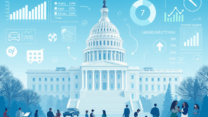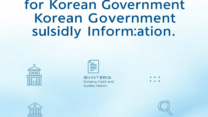
Why Confidentiality Matters in U.S. Grant Applications
Avoiding Legal Consequences from Data Misuse

When applying for U.S. federal or private grants, maintaining confidentiality isn’t just a best practice—it’s a legal necessity. Mishandling sensitive data, whether it’s personal information, proprietary research, or financial records, can lead to serious legal consequences, including disqualification from funding, fines, or even federal investigation.
Many grant applications require applicants to submit detailed project plans, budgets, and sometimes personally identifiable information (PII) of staff or participants. If this data is shared without proper consent or stored insecurely, it could violate federal privacy laws such as the Privacy Act of 1974 or the Health Insurance Portability and Accountability Act (HIPAA), depending on the nature of the data.
To avoid these risks, always:
– Use secure, encrypted platforms when submitting applications.
– Limit access to sensitive data to only essential personnel.
– Follow data retention and destruction policies as outlined by the grantor.
– Consult with a legal advisor or data privacy officer if unsure about data handling procedures.
Additionally, be aware that some federal grants fall under the jurisdiction of the Federal Funding Accountability and Transparency Act (FFATA), which requires certain data disclosures. However, this doesn’t mean all information becomes public—understanding what must remain confidential is key.
Protecting data isn’t just about avoiding penalties—it builds trust with funders and strengthens your organization’s reputation. For more guidance, the U.S. Department of Health and Human Services offers resources on data privacy compliance: https://www.hhs.gov/hipaa/index.html
Protecting Competitive Intelligence in High-Tech Industries

In the competitive landscape of U.S. high-tech industries, maintaining confidentiality in grant applications is not just a matter of privacy—it’s a strategic necessity. When applying for federal or private research grants, especially in sectors like biotechnology, aerospace, or artificial intelligence, applicants often disclose proprietary methods, product designs, or early-stage innovations. If this sensitive information is not properly protected, it can be unintentionally exposed to competitors or even become public through FOIA (Freedom of Information Act) requests.
Confidentiality ensures that your competitive edge remains intact. Many U.S. grant programs, such as those from the National Science Foundation (NSF) or the Department of Energy (DOE), allow applicants to mark sections of their proposals as “confidential” or “proprietary.” This designation helps prevent the release of trade secrets or intellectual property during the review process or in public disclosures.
For startups and small businesses, this is especially critical. Leaked information can lead to idea theft, loss of first-mover advantage, or even jeopardize future patent applications. To safeguard your innovation, always review the grant agency’s confidentiality policies, use non-disclosure agreements (NDAs) when collaborating with partners, and consider legal counsel for sensitive proposals.
Protecting your competitive intelligence isn’t just about security—it’s about securing your future in a rapidly evolving tech economy.
For more on protecting proprietary information in federal grants, you can refer to the U.S. Small Business Administration’s guide: https://www.sba.gov/federal-contracting/contracting-guide/protecting-your-intellectual-property
Building a Proactive Confidentiality Framework with NDAs

When applying for grants in the United States, especially from federal agencies or private foundations, protecting sensitive information is more than just a good practice—it’s essential. Grant applications often include proprietary research, financial data, strategic plans, and personal information about key personnel. If this information is leaked or misused, it can not only compromise your competitive edge but also lead to legal and reputational consequences.
One of the most effective ways to proactively protect your confidential data is by establishing a clear confidentiality framework supported by Non-Disclosure Agreements (NDAs). NDAs are legally binding contracts that outline what information must remain confidential and restrict how it can be used or shared. These agreements are particularly important when collaborating with consultants, subcontractors, or even academic partners during the grant application process.
To build a strong confidentiality framework:
1. Identify all sensitive data in your grant application process—this includes technical details, budgets, and intellectual property.
2. Require NDAs for any external parties involved in drafting, reviewing, or submitting the application.
3. Train your internal team on data privacy best practices and legal obligations.
4. Use secure platforms for document sharing and communication.
Being proactive not only safeguards your information but also demonstrates professionalism and diligence to grant reviewers. For federal grants, the U.S. Department of Health & Human Services provides helpful guidance on data privacy and security in research applications: https://www.hhs.gov/ohrp/regulations-and-policy/guidance/index.html
By implementing NDAs and a thoughtful confidentiality framework, you reduce the risk of data leaks, ensure compliance with federal and state laws, and build trust with your collaborators and funders.
Real-Life Case: U.S. Semiconductor Subsidy Concerns

In recent years, the U.S. government has ramped up efforts to boost domestic semiconductor manufacturing through large-scale grants and subsidies, particularly under the CHIPS and Science Act. However, with billions of taxpayer dollars at stake, confidentiality in grant applications has become a critical issue.
A notable real-life example involves the scrutiny over foreign influence and data sharing in semiconductor subsidy applications. In 2023, concerns were raised when a major chipmaker applying for U.S. subsidies was found to have ties with foreign governments. This led to fears that sensitive business or technological information disclosed in the grant process could be accessed by foreign entities, potentially undermining national security and economic competitiveness.
Why does this matter? When companies submit grant applications, they often include proprietary data, strategic plans, and technical specifications. If this information is not adequately protected, it could be leaked or misused, leading to competitive disadvantages or even legal consequences. Moreover, lack of confidentiality can discourage companies from applying for grants, thereby weakening the overall goal of strengthening U.S. industry.
To mitigate these risks, the U.S. Department of Commerce has implemented stricter confidentiality protocols and vetting processes. These include secure submission portals, limited access to sensitive documents, and background checks on foreign partnerships. By ensuring that confidential data remains protected, the government not only upholds trust in the grant system but also fosters a safer environment for innovation and economic growth.
For more information on the CHIPS Act and its implementation, you can visit the official U.S. Department of Commerce page: https://www.commerce.gov/chips-act







